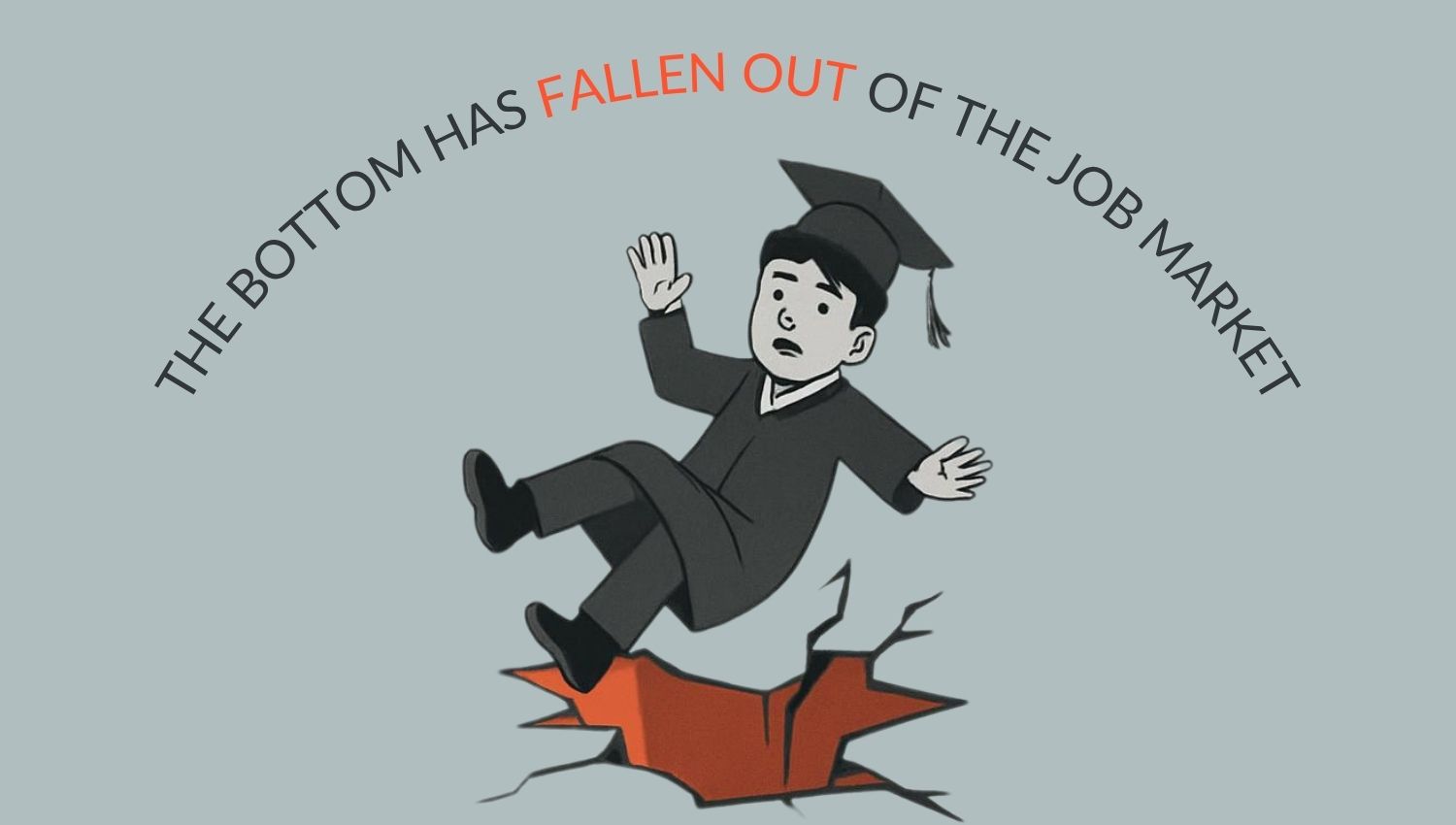Have you ever wondered why your child's expensive tuition and university degree aren't translating into the career success you expected?
The traditional path to prosperity has changed dramatically, and today's graduates are paying the price. For the first time in Singapore's history, the unemployment rate among young graduates is consistently higher than the national average. What isn't highlighted (enough) in the national medias is not just a temporary issue, but a fundamental shift in how our economy values education. Those days when a university degree guaranteed a comfortable middle-class life are long gone. It's crucial for parents to grasp this new reality before making financial decisions that could affect their families for decades.
The Vanishing Graduate Advantage
Let's be brutally honest about what's changed:
- Technology has leveled the playing field
Every teenager with a smartphone now has technical skills that once required formal education. The basic digital literacy that used to distinguish graduates is now universal.
- Traditional graduate industries are shrinking
Finance, law, journalism – these once-reliable career paths are contracting due to Artificial Intelligence (AI). Since 2016, the number of graduates working in law and finance has dropped by 10%.
- AI is coming for entry-level knowledge work
The grunt work that new graduates traditionally handled, such as research, document review, basic coding and writing etc, is becoming increasingly automated. As a result, the entry-level positions that once served as stepping stones to professional or managerial positions are disappearing. Now, mid-level positions typically require you to be in the top 20% of your graduating cohort just to secure an interview.
- Global competition has intensified
Many innovation sectors, from electric vehicles to renewable energy, have shifted operations to countries with lower labor costs. Singapore's graduates now compete in a truly global talent market.
As one tutor from Getseducation remarked: “The real issue isn't the quality of graduates; it's that employers can increasingly find non-graduates to perform jobs that once required degrees. As data shows, educational requirements are becoming less stringent across nearly every economic sector."
The Real-World Impact on Graduates
What does this mean for actual graduates? Let me share some sobering statistics:
- At Stanford Business School, only 80% of 2024 graduates had jobs three months after graduation, down from 91% in 2021
- Across the European Union, young graduates' unemployment rate is approaching the overall rate for their age group
- Similar trends are appearing in Britain, Canada, and Japan
The psychological impact shouldn't be underestimated. Luigi Mangione, a University of Pennsylvania graduate who allegedly murdered a health insurance CEO, has received over $1 million in donations from people who sympathize with his alienation. While his actions are inexcusable, the widespread sympathy speaks volumes about graduate disillusionment.
What Parents Need to Know
If you're the parent of a current or future undergraduate, here's what you need to understand:
- The degree alone isn't enough
The certificates that once opened doors now only get your child into the lobby. Practical skills, work experience, and personal networks are more important than ever. When you send your child to a reputable tuition center, both the adult and the child benefit from the extended network and the opportunity for expanded horizons.
- Subject choice is crucial
STEM fields (science, technology, engineering, and mathematics) continue to offer better employment prospects than humanities, despite increasing competition. Additionally, do not underestimate the advantage of speaking good Mandarin in your career development. A tuition center with a history in Chinese language education can provide your child with a unique blend that enhances their personal profile.
- Alternative paths deserve consideration
Trade schools, apprenticeships, and entrepreneurship may offer better returns than traditional degrees for many young people.
- The cost-benefit equation has changed
When evaluating education options, consider the total cost (including opportunity cost) against realistic income projections, not outdated assumptions about graduate earnings.
- Elite institutions still matter
The stratification within higher education has intensified. Top universities (NUS, NTU, SMU) or branded professional bodies continue to offer advantages, while the value proposition of mid-tier higher learnings has weakened.
The Path Forward
Despite these challenges, quality Singapore education remains valuable. But its value proposition has changed. Today's graduates need different preparation than previous generations:
- Practical skills alongside theoretical knowledge
Encourage your child to pursue internships, part-time work, and skill-building opportunities throughout their education. At Getseducation, we encourage senior tutees to take on the role of assistant coach for lower-level tutees.
- Financial literacy
Understanding debt, investment, and personal finance is essential for navigating an economy where stable, long-term employment is increasingly rare.
- Global perspective
Graduates who can operate across cultures and borders have advantages in an interconnected economy.
- Adaptability
Perhaps most importantly, today's graduates need to embrace continuous learning and career pivots as normal features of working life.
The Harsh Reality
The uncomfortable truth is that we've oversold higher education to a generation. We promised that degrees would deliver prosperity, security, and fulfillment. For many graduates, that promise has proven hollow.
This doesn't mean education lacks value! But its value is different than what we've traditionally claimed. Knowledge, critical thinking, and personal growth remain worthwhile pursuits. But as financial investments, many degrees (apart from medicine) no longer deliver adequate returns.
Parents need to have honest conversations with their children about these realities. The path to a good life still exists, but it no longer runs straight through university gates.
Dr Fiona:
"We want to see our tutees as successful graduates who combine education with practical skills, entrepreneurial thinking, and realistic expectations. They will understand that their degrees are just starting points, not guarantees tools for building careers, not tickets to pre-built ones. Instead, It serves as a foundation in a world that is continually changing"
Our challenge as parents isn't to abandon education, but to reframe it: not as a guaranteed path to prosperity, but as one component of a complex, lifelong strategy for navigating an increasingly uncertain economic landscape.




%20and%20Polytechnic%20will%20influence%20your%20career%20development.jpg)